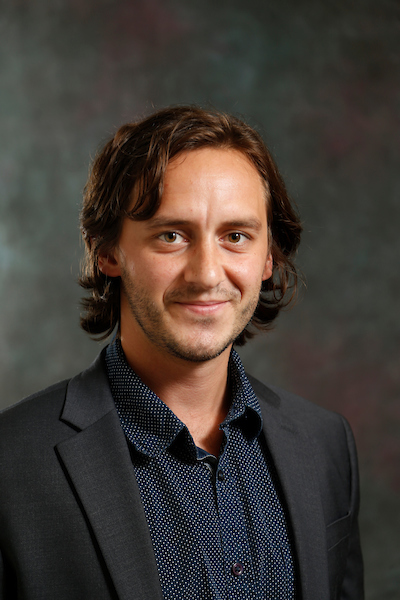Youths’ Family and Non-Family Roles as Predictors of Subjective Adulthood in Three Low-Income Agricultural Settings: An interview with Mr. Erick Axxe
Much of the existing research on subjective adulthood (i.e., feeling like an adult) among adolescents has been conducted with participants from wealthy countries. In their recent article on this topic, Erick Axxe and his colleagues instead examined subjective adulthood among youth from less frequently studied settings—specifically, Jalisco, Mexico, Gaza Province, Mozambique, and Chitwan Valley, Nepal.
Erick took some time to answer our questions on the findings outlined in his recent article.
1. What is the main takeaway of your article?
Our analyses support the view that adult identities develop via interpretive mechanisms. This contrasts with perspectives that propose specific mechanisms, such as adult role acquisition, family resources, or adult responsibilities, will consistently contribute to adult identity development. Three findings support our claim:
1. We find adult role acquisition is inconsistently related to adult identities. Instead, evidence points to how the relationship may be mediated by the autonomy youth have in taking on adult roles. In other words, an adolescent’s ability to choose whether or not to take on adult roles may be an important factor in whether they develop adult identities.
2. In the United States, children in families with low amounts of family capital (parenting resources, economic resources, etc.) tend to experience childhood adultification, or the early onset of adult identities. In contrast, our study settings show little evidence of this relationship. We propose this inconsistency has to do with how youth interpret their pathway to adulthood relative to their peers.
3. Finally, romantic experiences (dating or marriage) are one of the few factors that consistently correlate with adult identities across sites. We propose this could have to do with recentering, or when individuals shift from relationships as dependents towards relationships that require them to take on responsibilities for others.
2. What questions does this paper address? Why were these questions important?
Much research focuses on the transition to adulthood in wealthy, industrialized countries, and this limited focus can lead to unaddressed assumptions about the transition to adulthood. For example, financial independence is an important mechanism in adult identity development in wealthy, industrialized countries, but is it as important a factor in settings where families play an important role in providing economic and practical support throughout the life course?
Our paper explores the factors that contribute to adult identities in three distinct settings: Jalisco, Mexico; Gaza Province, Mozambique; and the Chitwan Valley, Nepal. Previous research connects adult identity development and important outcomes such as life satisfaction, mental health, and risk behaviors, but the underlying factors that contribute to adult identity development remain unclear. Specifically, we ask whether adult role acquisition, family resources, and adult responsibilities are related to adult identities in the three study settings.
3. What do you wish that more people knew about this topic?
The factors thought to contribute to early adultification in wealthy, industrialized countries do not necessarily cause negative outcomes. Instead, other factors create disparate outcomes. For example, youth in wealthy, industrialized countries may compare their pathway to adulthood with their peers, and this contrast leads them to perceive their transition to adulthood as non-normative. These non-normative experiences could go on to shape their relationships with adults (teachers, coaches, mentors, etc.). More directly, researchers should consider how normative experiences vary both across and within contexts. We believe this consideration could contribute to a better understanding of healthy development.
4. Are there any papers, videos, or blog posts that you would recommend to readers who are interested in this topic?
We recommend Juárez and Gayet’s and Shanahan’s articles in the Annual Review of Sociology. We also recommend Dr. Jennifer Silva’s work; for example, her piece titled, “Constructing Adulthood in an Age of Uncertainty”.
5. What are you most excited to see in this field in the future? What questions are you particularly excited to get answers to?
There are a few things that the scientific community knows about the transition to adulthood. We know societies tend to distinguish between adults and children. We know that the criteria distinguishing those categories vary across societies, and that many societies are updating the criteria used to distinguish between children and adults. But we still do not know much about the variation across societies and, even more interesting, how and why the distinction between children and adults is changing. Age categories dictate the institutions we participate in (education, labor, criminal justice, etc.), and they also have powerful effects on human behavior. If the research community can better understand how perceptions of these categories are changing, we could gain insight into interesting questions such as how long individuals will remain in school, the types of careers people choose to participate in, whether and when people decide to become parents, among others.
6. Is there anything else you would like to share with regard to your article or the methods used to conduct your study?
Conducting comparative research is challenging, but very important for broadening our understanding of how context shapes adolescent development. We need more descriptive research for theory-building as well as theory-testing.
Full research article:
Axxe, E., Hayford, S. R., & Eggum, N. D. (2022). Youth’s family and non-family roles as predictors of subjective adulthood in three low-income agricultural settings.” Journal of Research on Adolescence. https://doi.org/10.1111/jora.12731
 Author bio:
Author bio:
Mr. Erick Axxe is a Ph.D. candidate in the Department of Sociology at The Ohio State University. He has two research areas. The first investigates how institutions shape identity during the transition to adulthood. The second is in Computational Social Science; he constructs novel web-based data sources to test for racial and gender inequality. His work involves a wide range of data sources: surveys, qualitative interviews, and data scraped from the internet.

